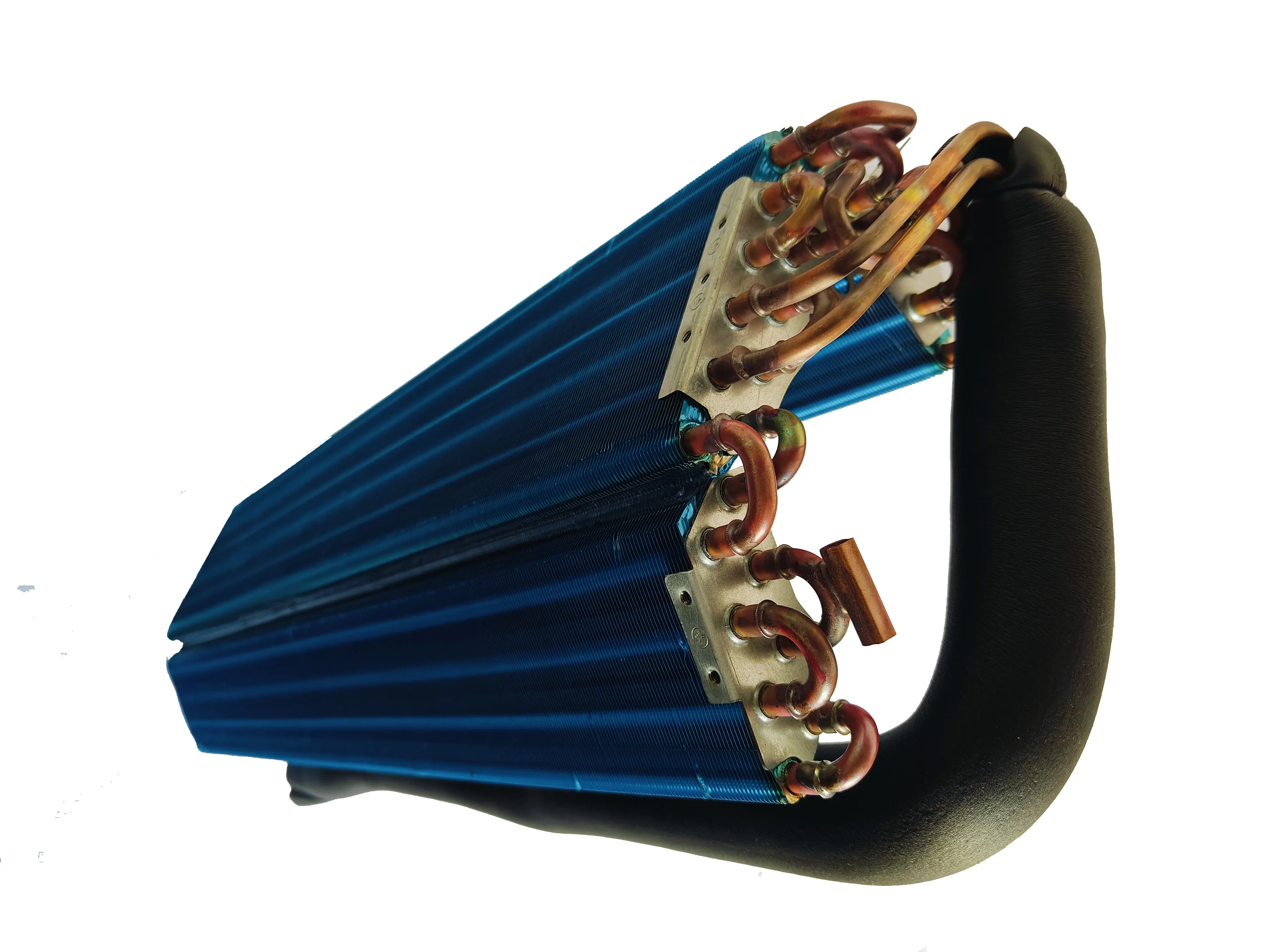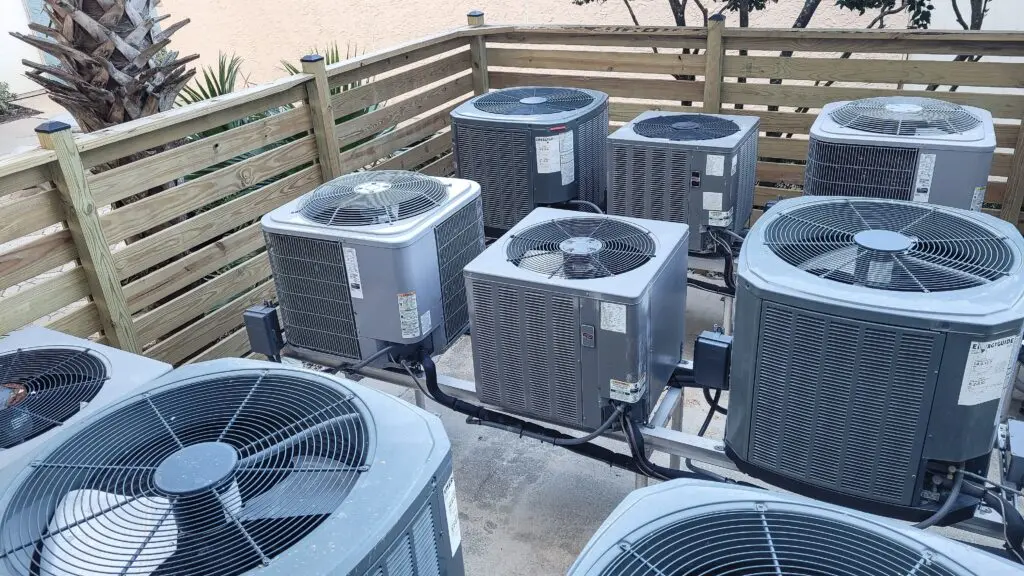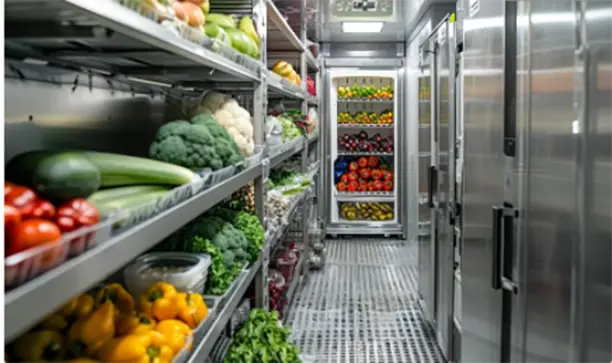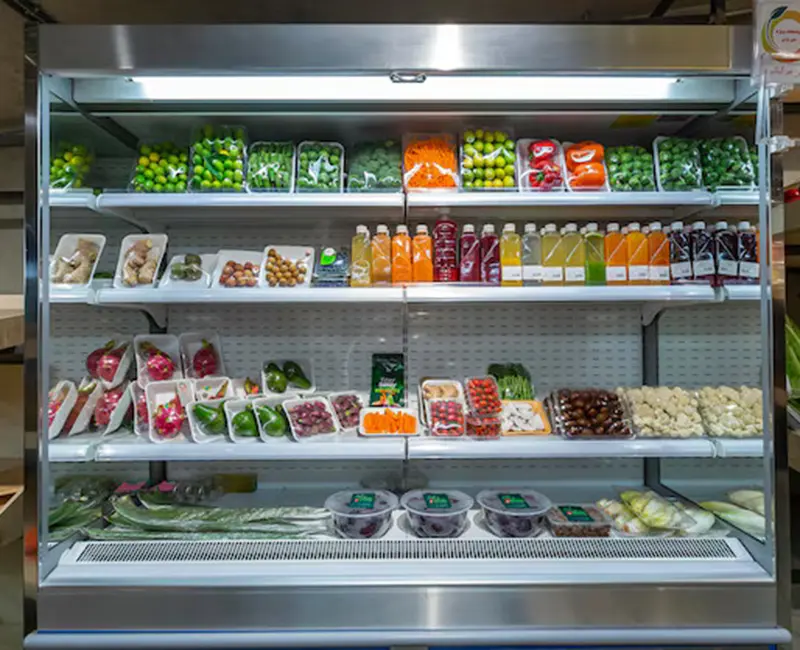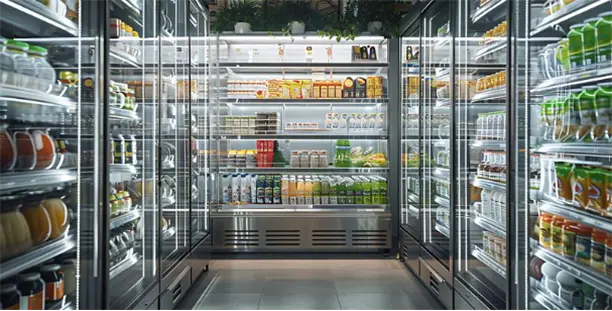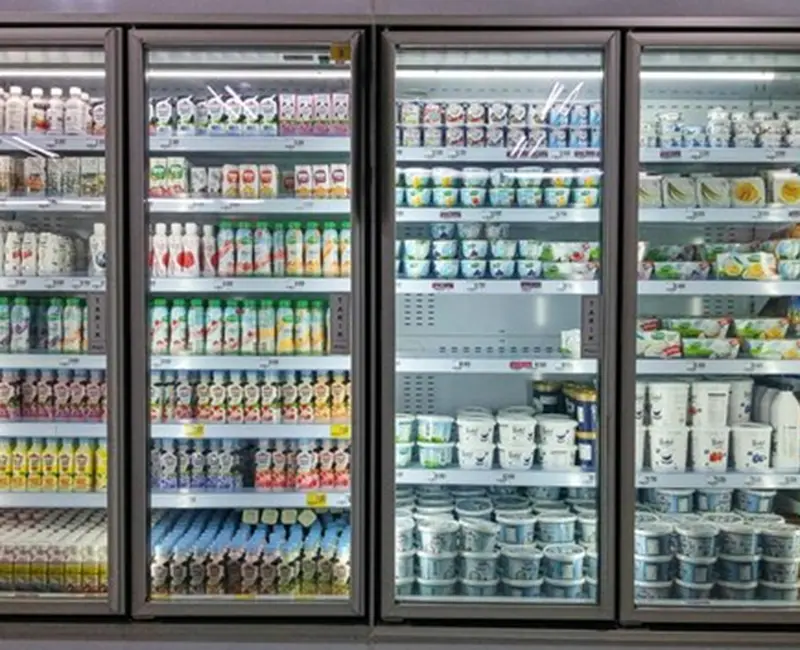Why Wire Tube Condensers Are Dominating the Modern Refrigerator Industry: 2025 Trends

In 2025, wire tube condensers are transforming the refrigerator industry. Their unmatched efficiency and eco-friendly design make them a preferred choice for manufacturers and consumers alike. The shift to low-GWP refrigerants, like HFOs, aligns with global efforts to combat climate change. These refrigerants, combined with innovations in heat transfer, reduce energy consumption and environmental impact. Regulatory programs, such as the EPA's SNAP initiative, further accelerate this transition by limiting high-GWP refrigerants. Companies like Ningbo Senjun New Materials Co., Ltd. lead this evolution, driving advancements in wire tube condenser technology to meet modern demands.
Key Takeaways
- Wire tube condensers save energy, using less electricity in fridges.
- Using low-GWP refrigerants with these condensers helps the environment.
- They are cheap and strong, so people and makers like them.
What Are Wire Tube Condensers?

Wire tube condensers are essential components in modern cooling systems. They consist of a network of tubes wound with wire, which increases the surface area for heat exchange. This design ensures optimal heat transfer, making them a preferred choice in refrigeration and air conditioning technologies. Their durability and efficiency have made them indispensable in industries such as automotive, food and beverage, and renewable energy.
How Wire Tube Condensers Work
Wire tube condensers operate by transferring heat from the refrigerant inside the tubes to the surrounding air. The wire wound around the tubes enhances the surface area, allowing for more efficient heat dissipation. This process ensures that the refrigerant cools down effectively, maintaining the desired temperature in refrigeration units. Their ability to handle high-pressure refrigerants makes them suitable for various applications, including industrial cooling and residential appliances.
Key Advantages of Wire Tube Condensers
The advantages of wire tube condensers are numerous. Their enhanced heat transfer efficiency leads to significant energy savings, which is crucial in today’s energy-conscious world. They are also highly durable, ensuring reliable performance over time. Additionally, their cost-effectiveness makes them an attractive option for manufacturers and consumers alike. The growing demand for energy-efficient cooling solutions has further solidified their position as a leading technology in the refrigeration industry.
Wire tube condensers are not just components; they are the backbone of efficient and sustainable cooling systems.
Trends Driving the Adoption of Wire Tube Condensers in 2025

The Push for Energy Efficiency in Appliances
Energy efficiency has become a top priority in the appliance industry. I’ve noticed that wire tube condensers play a pivotal role in meeting this demand. Their advanced heat transfer capabilities significantly reduce power consumption, making them an ideal choice for modern refrigerators. According to market data, the HVAC industry has embraced these condensers for their ability to enhance energy efficiency. For instance, they contribute to reducing exergy destruction, which improves overall system performance. This focus on energy-saving measures aligns with global regulations and consumer preferences for eco-friendly appliances.
| Metric | Value |
|---|---|
| Projected CAGR (2023-2030) | Approximately 5.6% |
| Role in HVAC Industry | Efficient heat exchange |
| Impact on Energy Consumption | Reduces power consumption |
| Demand Drivers | Energy efficiency regulations |
Transition to Low-GWP Refrigerants
The shift to low-GWP refrigerants has revolutionized refrigeration systems. I’ve observed that wire tube condensers excel in utilizing these refrigerants, such as HFOs and natural alternatives. These refrigerants not only lower environmental impact but also improve thermodynamic properties. This results in better heat transfer and enhanced system performance. By adopting low-GWP refrigerants, manufacturers can comply with stringent environmental regulations while delivering superior energy efficiency.
- Low-GWP refrigerants, like HFOs, drastically reduce global warming potential compared to traditional HFCs.
- Enhanced heat transfer properties make them a perfect match for wire tube condenser systems.
- These refrigerants contribute to lower energy consumption, benefiting both the environment and consumers.
Growing Focus on Sustainability and Eco-Friendly Technologies
Sustainability has become a driving force in the appliance industry. I’ve seen how wire tube condensers align perfectly with this trend. Their design supports the use of eco-friendly refrigerants and minimizes energy waste. Companies are also investing in sustainable manufacturing processes to meet consumer demands and regulatory standards. For example, innovations in materials and designs have made these condensers more efficient and environmentally friendly. This commitment to sustainability ensures that wire tube condensers remain a cornerstone of modern refrigeration technology.
| Key Industry Developments | Description |
|---|---|
| Sustainability Initiatives | Adoption of eco-friendly technologies to meet regulatory standards and consumer demands. |
| Technological Advancements | New materials and design improvements enhance performance and energy efficiency. |
Cost-Effectiveness and Affordability for Manufacturers and Consumers
Cost-effectiveness is another reason why wire tube condensers dominate the market. I’ve noticed that their simple yet efficient design reduces manufacturing costs. This affordability benefits both manufacturers and consumers. For manufacturers, it means lower production expenses and higher profit margins. For consumers, it translates to energy-efficient appliances at competitive prices. The growing demand for affordable, sustainable cooling solutions has further solidified the position of wire tube condensers in the industry.
Wire tube condensers offer a unique combination of efficiency, sustainability, and affordability. These qualities make them indispensable in the modern refrigerator industry.
Comparing Wire Tube Condensers to Alternative Technologies
Wire Tube Condensers vs. Plate Condensers
When comparing wire tube condensers to plate condensers, I’ve noticed distinct differences in performance and application. Plate condensers, with their elliptical flow design, excel in reducing frictional losses and improving heat transfer. Studies show that they can decrease compressor work by 8.6% to 11.3%, leading to lower power consumption in domestic refrigeration systems. However, wire tube condensers offer unmatched versatility. Their robust design supports a wide range of applications, from residential refrigerators to large-scale commercial HVAC systems. While plate condensers may outperform in specific scenarios, wire tube condensers remain the preferred choice for their durability and adaptability.
Wire Tube Condensers vs. Microchannel Condensers
Microchannel condensers, known for their compact design, provide efficient heat exchange in limited spaces. Yet, I’ve observed that wire tube condensers surpass them in application versatility and energy savings. Wire tube condensers enhance efficiency in both air conditioning and refrigeration systems, making them critical for large-scale operations. Additionally, their simpler design reduces manufacturing costs, offering a more affordable solution for manufacturers. While microchannel condensers may suit niche applications, wire tube condensers dominate in terms of reliability and cost-effectiveness.
| Performance Metric | Wire Tube Condensers | Alternative Technologies |
|---|---|---|
| Heat Transfer Efficiency | Superior | Varies |
| Energy Savings | Significant | Limited |
| Application Versatility | High | Moderate to Low |
Why Wire Tube Condensers Are the Optimal Choice in 2025
Wire tube condensers stand out as the optimal choice in 2025 due to their superior performance and adaptability. Their ability to handle diverse refrigerants, including low-GWP options, ensures compliance with environmental regulations. I’ve seen how their design contributes to significant energy savings, benefiting both manufacturers and consumers. Furthermore, their cost-effectiveness makes them accessible to a broader market. These qualities solidify their position as the backbone of modern refrigeration technology.
The Role of Companies Like Senjun in Advancing Wire Tube Condensers
Overview of Ningbo Senjun New Materials Co., Ltd.
Ningbo Senjun New Materials Co., Ltd. has established itself as a leader in the production of wire tube condensers. I’ve observed how their expertise extends beyond refrigerators to include applications like medical ultra-low temperature refrigerators, freezers, and dehumidifiers. Their focus on durability and efficiency ensures that their products meet the highest industry standards. By prioritizing customer satisfaction, Senjun has positioned itself as a trusted supplier in the global market.
- Their product range includes copper-aluminum fin heat exchangers and wire tube condensers.
- They cater to diverse industries, including medical, commercial, and residential refrigeration.
This versatility highlights their commitment to innovation and adaptability in a competitive market.
Innovations in Wire Tube Condenser Design
The refrigeration industry thrives on innovation, and companies like Senjun play a pivotal role in advancing wire tube condenser technology. I’ve noticed how leading firms, including Carrier Corporation and Mitsubishi Electric, focus on energy efficiency and sustainability. Senjun mirrors this trend by adopting cutting-edge materials and eco-friendly technologies.
- Development of new materials that enhance heat transfer efficiency.
- Integration of smart features, such as IoT-enabled monitoring systems.
- Continuous improvement in design to reduce energy consumption.
These advancements ensure that wire tube condensers remain at the forefront of modern cooling solutions.
Contributions to the Refrigerator Industry
Senjun’s contributions to the refrigerator industry are undeniable. Their innovative designs and commitment to sustainability have set new benchmarks. I’ve seen how their products help manufacturers meet stringent environmental regulations while maintaining affordability. By offering reliable and efficient solutions, Senjun has become a cornerstone of the refrigeration industry.
Companies like Senjun don’t just manufacture components; they shape the future of refrigeration technology.
Future Implications for the Refrigerator Industry
Opportunities for Manufacturers
I see immense opportunities for manufacturers in the evolving refrigeration industry. The increasing demand for energy-efficient technologies and sustainable practices is driving innovation. Emerging markets, such as Asia-Pacific, Latin America, and Africa, offer significant growth potential due to rapid industrialization. Rising investments in infrastructure development also create a need for efficient cooling systems.
Manufacturers can capitalize on these trends by integrating smart technologies and IoT into their products. This enhances performance and aligns with the growing preference for connected appliances. Additionally, the shift toward electric vehicles (EVs) opens new avenues for heat exchange systems. The focus on renewable energy sources further drives innovation in condenser technology.
- Strong demand exists for advanced condenser systems in commercial refrigeration sectors like food storage and pharmaceuticals.
- Sustainable technologies and emerging markets present lucrative growth opportunities.
Benefits for Consumers
Consumers benefit greatly from the advancements in wire tube condensers. These components are recognized for their durability and high efficiency, making them a reliable choice across various applications. Their superior heat transfer capabilities reduce energy consumption, which translates to lower utility bills.
Regulatory standards aimed at reducing energy usage also ensure that consumers receive eco-friendly and cost-effective solutions. The growing demand for energy-efficient cooling systems highlights the value these condensers bring to end-users. I believe this combination of efficiency and affordability makes wire tube condensers a preferred option for modern refrigeration needs.
The Role of Wire Tube Condensers in Shaping the Industry’s Future
Wire tube condensers play a pivotal role in shaping the future of refrigeration. The market is projected to grow at a CAGR of approximately 5.6% from 2023 to 2030, driven by energy efficiency concerns and eco-friendly technologies. Innovations in heat transfer and the integration of IoT are enhancing their performance.
| Aspect | Details |
|---|---|
| Market Growth Rate | Estimated CAGR of approximately 5.6% from 2023 to 2030. |
| Key Players | Carrier Corporation, Trane Technologies, Johnson Controls, Daikin Industries, Mitsubishi Electric. |
| Technological Advancements | Integration with IoT, energy-efficient designs, and recyclable materials. |
| Sustainability Focus | Emphasis on eco-friendly technologies and low-GWP refrigerants. |
I see wire tube condensers as a cornerstone of sustainable refrigeration. Their ability to meet regulatory demands and consumer preferences ensures their continued dominance in the industry.
Wire tube condensers have redefined refrigeration in 2025. Their unmatched efficiency and sustainability make them indispensable. Companies like Ningbo Senjun New Materials Co., Ltd. lead this transformation with innovative designs. As the industry evolves, I see these condensers continuing to shape the future of refrigeration with their cost-effective and eco-friendly solutions.
FAQ
What makes wire tube condensers more energy-efficient than other technologies?
Wire tube condensers maximize heat transfer with their unique design. I’ve seen how their increased surface area reduces energy consumption, making them ideal for modern refrigeration systems.
Are wire tube condensers compatible with low-GWP refrigerants?
Yes, wire tube condensers work seamlessly with low-GWP refrigerants. Their design supports efficient heat exchange, ensuring compliance with environmental regulations and enhancing overall system performance.
Why are manufacturers choosing wire tube condensers over alternatives?
Manufacturers prefer wire tube condensers for their cost-effectiveness, durability, and adaptability. These qualities make them a reliable choice for diverse applications, from residential to industrial cooling systems.
Tip: Wire tube condensers are a sustainable and affordable solution for energy-efficient refrigeration. Their versatility ensures they remain a top choice in the industry.









